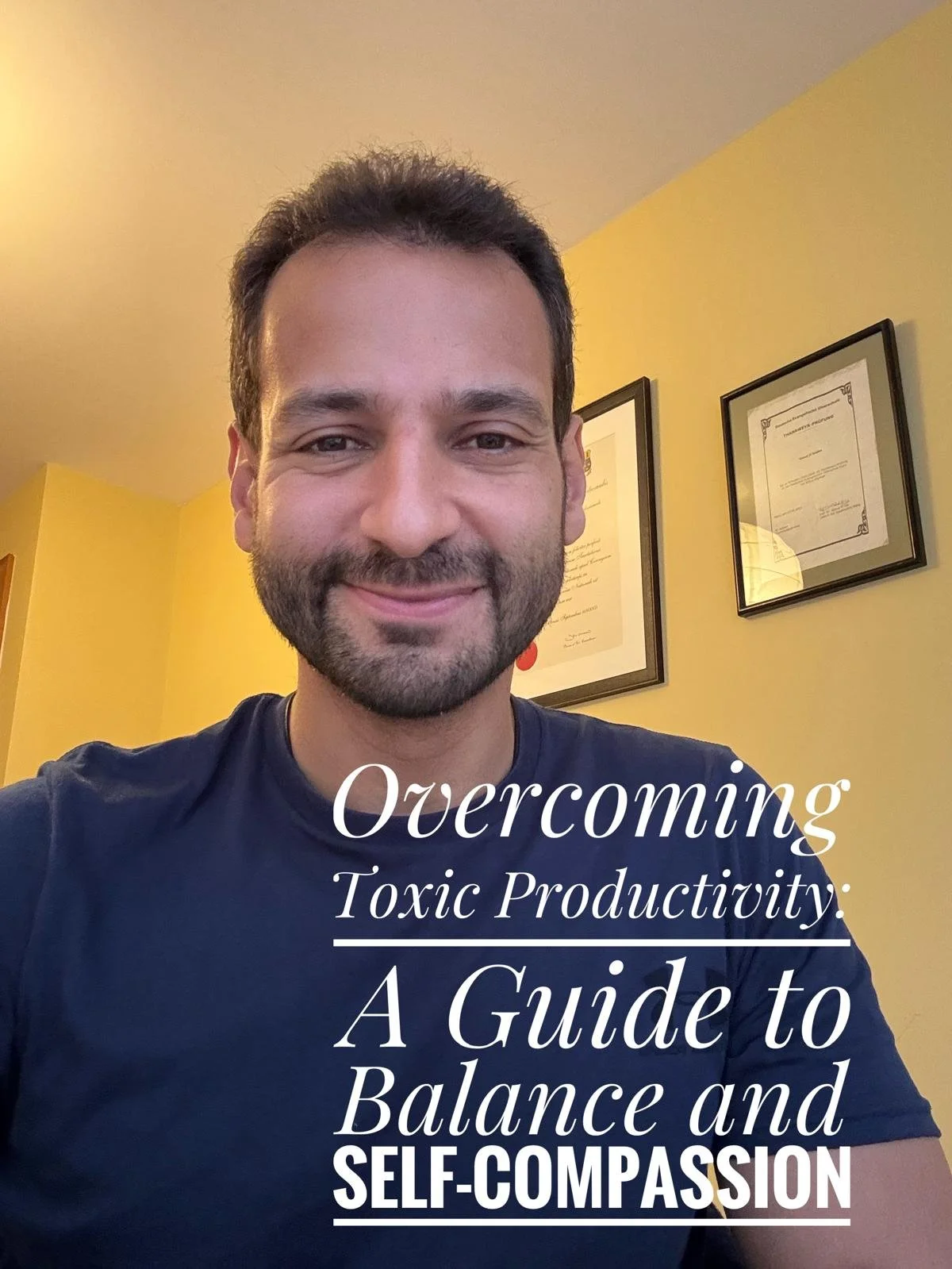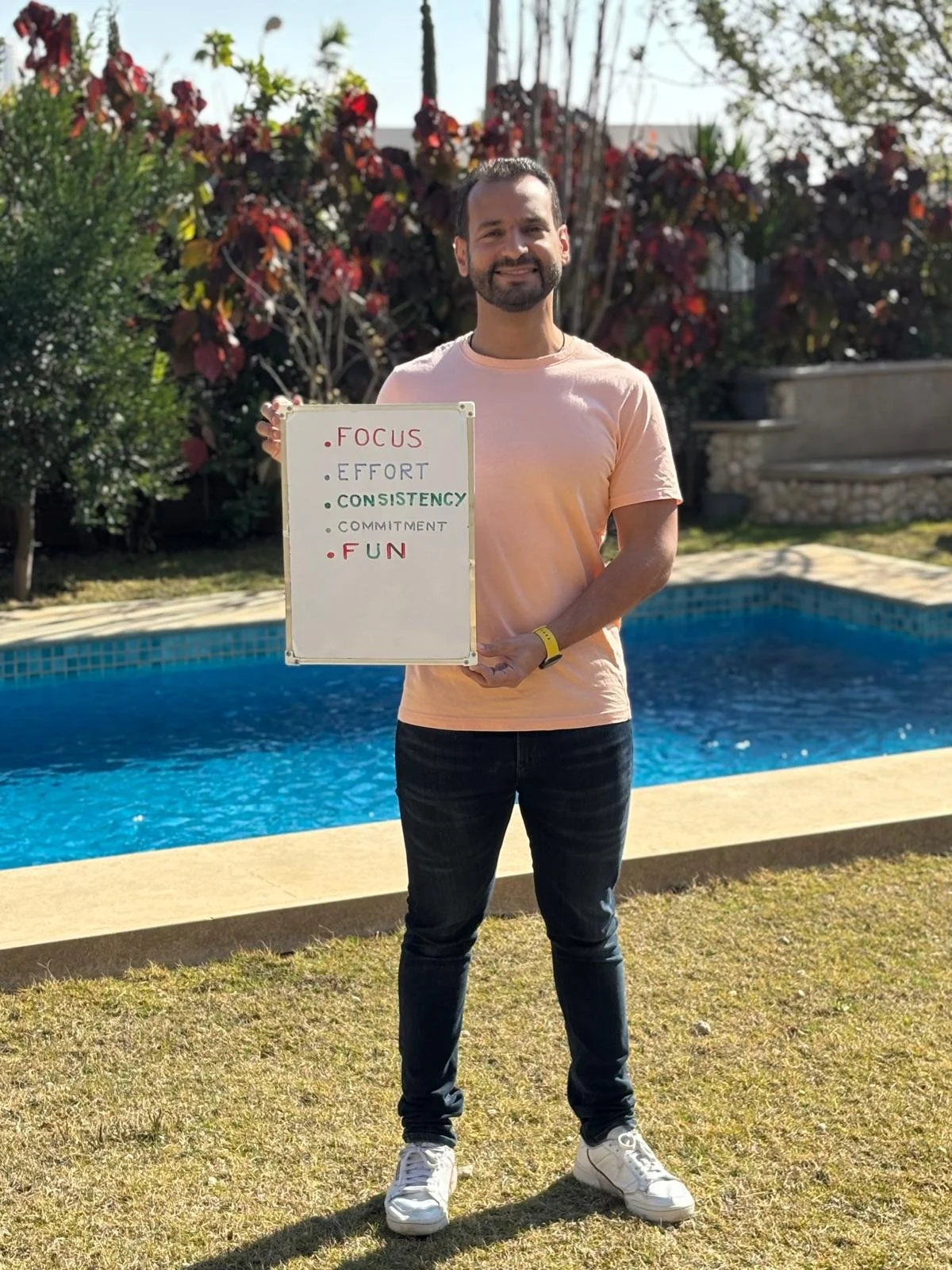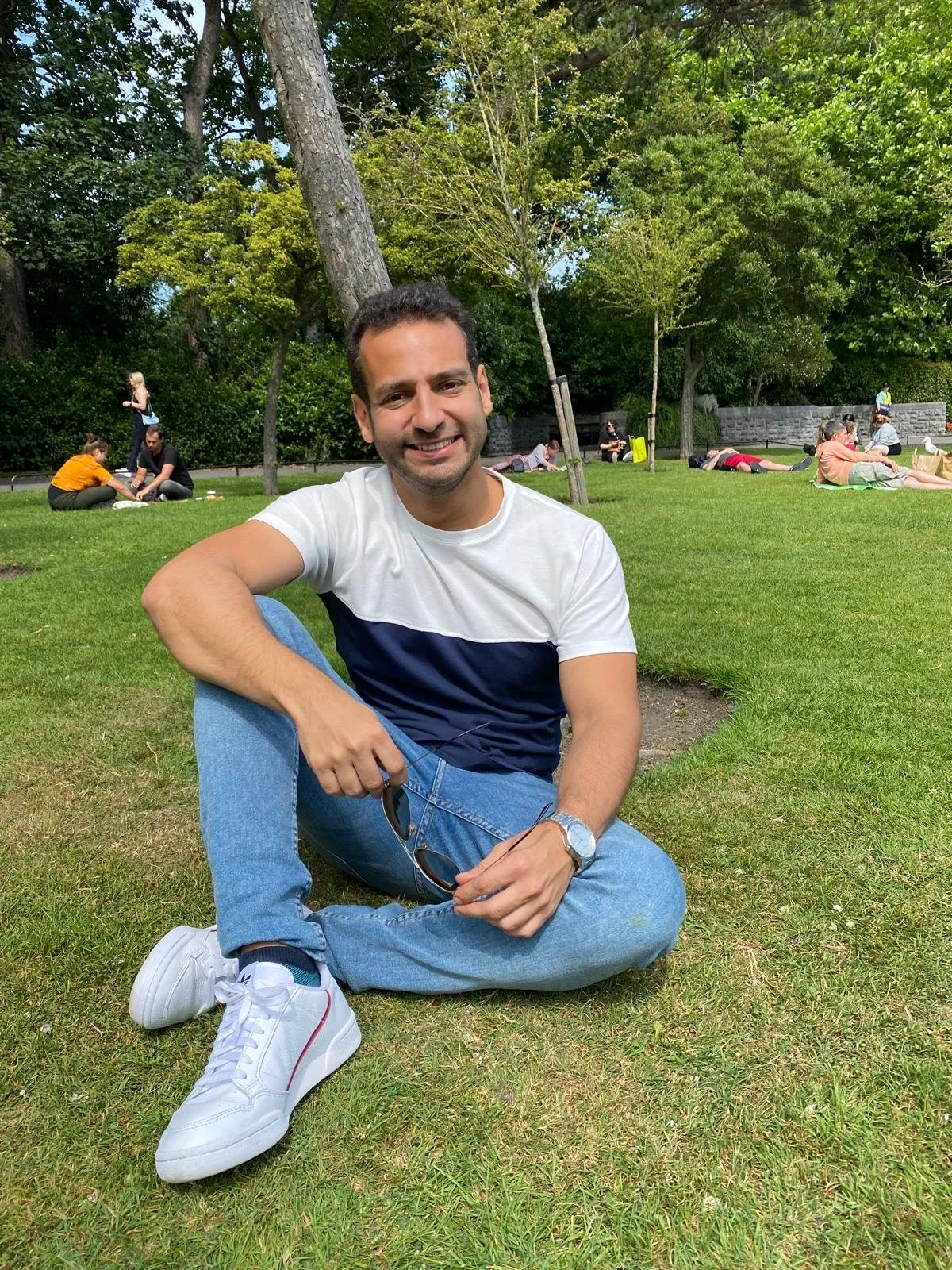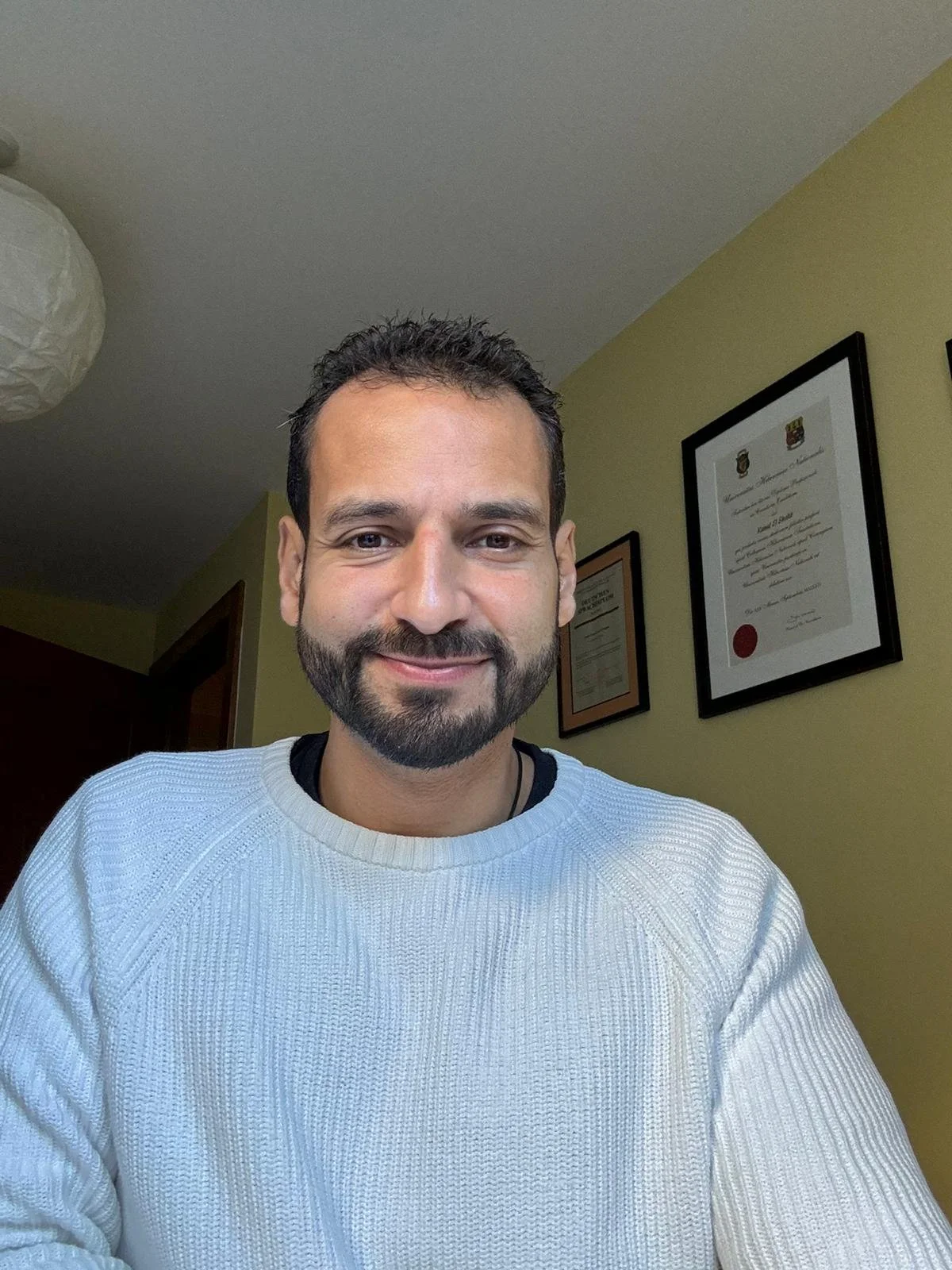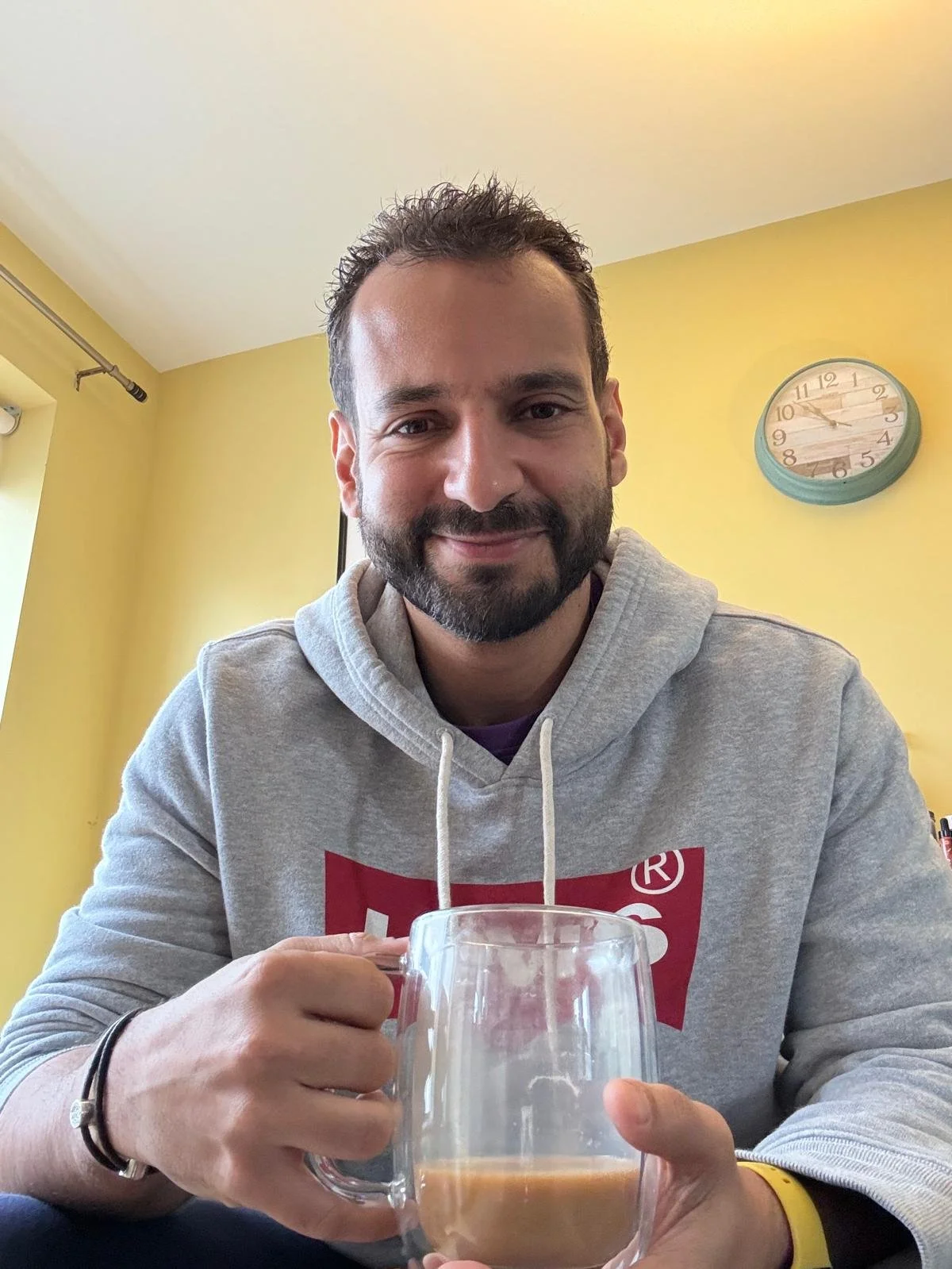Cultural Burnout: The Silent Struggle of Living Between Two Worlds
Moving abroad sparked a new chapter filled with growth, opportunities and self-discovery. What I did not anticipate was the emotional weight of returning home. I was not prepared for the challenges that came with navigating the shifting roles of my relationships, the guilt of not meeting expectations and feeling the effect of my absence.
Over time, ‘home’ began to feel less like home and more like going on a trip or vacation. Every visit, I was faced with the growing distance between me and my old life. The people, the places and the traditions that once felt like second nature began to feel unfamiliar and even misaligned.
In the midst of this shift, a subtle exhaustion began to creep in. It would take me weeks to readjust after a trip home, and I often felt mentally and emotionally drained in the process. I did not know what was truly going on until I came across the concept of cultural burnout.
What is cultural burnout?
Cultural burnout refers to the mental and emotional exhaustion that arises from prolonged exposure to different cultures. Navigating the differences in expectations, values, and norms of a new culture is just one side. Returning home to the culture I was brought up in but was no longer a part of brought an entirely new challenge that I did not anticipate.
The Unexpected Challenge of ‘Going Home’
When I began to visit my hometown after living abroad, I noticed the disconnect immediately. I have changed, but my family expects me to fulfil the same role as I did before. There’s pressure to attend every gathering, to say ‘yes’ to every invitation, because “you’re never here.” My need for personal space, something I’ve come to value deeply, is often perceived as rejection.
Julia, who moved from Germany to Ireland, describes the feeling perfectly: “Going home once or twice a year puts you in holiday mode, but when you stay longer, you realize how much you’ve missed. My family continued evolving, but in a different way than I did. I don’t even know them the same way anymore.” The longer you stay, the clearer the emotional distance becomes.
The Challenge of Changing Roles:
One of the most jarring experiences of cultural burnout is realising that the role you played in your family hasn’t evolved the way you have. In many families, roles are deeply ingrained and have been shaped by years of unspoken rules. But when you’ve spent time away, developing your own individuality, it can be hard for your loved ones to accept that you are no longer exactly the same person.
Viktorija, who moved from Lithuania, explained it as: “Who you are now threatens who I am. My family hasn’t changed in the way I have. Their life is still focused on the same things while my world has expanded. My goals have shifted. But to them, I need to justify why I’m different.” It is not just overwhelming to feel the expectation to conform but also to feel the guilt when you don’t.
Setting Boundaries Without Guilt:
One of the hardest lessons to learn when dealing with cultural burnout is how to set boundaries with love. There’s often little understanding that needing time alone doesn’t mean you love your family any less.
Michal, who returned to Poland after years in Ireland, shared how he tried to balance this: “In my family, individuality is accepted only within cultural boundaries. If I say I need space, it was at first looked upon weirdly, but with time and persistence, the family accepted. I’ve learned to phrase it as a joke, to lighten the conversation. But still, setting firm boundaries is an ongoing challenge.”
The key is to recognise that boundaries are not about rejecting your culture but about preserving your own well-being. Preparing my loved ones in advance by setting expectations about what I need or including them in activities that align with my new way of life helped ease the transition.
The Myth of the ‘Perfect Expat Life’
Another surprising challenge of returning home is meeting the assumption that because you live abroad, your life must be perfect, and you are not allowed to complain.
There’s little space for expats to express struggles or challenges with their loved ones because the perception is that since they have left, they have ‘made it.’ The reality, however, is much more complex. Many expats struggle with not fully belonging anywhere and are often faced with feeling out of place in both their home country and their new one.
Julia from Germany recalls feeling unable to express her feelings or problems she was facing with family and friends. “It was hard to understand for them because they did not experience this themselves and could not relate to the challenges you face when you live in a different country, in a different culture and work in a different language."
Finding a Way Forward:
Despite its challenges, cultural burnout offers a powerful opportunity for growth. Living abroad gives you the gift of seeing beyond the dysfunctional norms and traditions you grew up with. It forces you to examine what truly serves you and what doesn’t.
Michal put it well: “You can only see the dysfunctionalities of your home culture when you step outside of it. But at the same time, you have to respect that not everyone will see what you see.”
The solution is not to reject your roots, nor is it to place yourself above them. The real balance lies in embracing your individuality while still showing compassion to those who haven’t had the same experiences and honouring where they are in their own journey.
For anyone experiencing cultural burnout, here’s what has helped me:
Set Boundaries – Protect your time and energy without guilt. Your need for space is valid.
Don’t Be Afraid to Miss Out – You don’t need to attend every event just because you’re back home. Prioritise what feels meaningful and aligned to you.
Stay Focused on the Bigger Picture – Your growth and evolution are valuable. Honour the changes in yourself, even if others struggle to accept and celebrate them.
Ultimately, cultural burnout is a sign of transformation. You have expanded beyond the life you once knew, and it may take some time to find balance in your new life. The challenge is in learning how to exist between two worlds without losing yourself in either one. Learning how to navigate two entirely different cultures takes time and patience. If this is something you are dealing with, go easy on yourself and allow for some time to move slower with fewer expectations. Cultural burnout may present itself in many challenging ways as you shift from your home to your new life, but behind them all are powerful seeds of growth.
Overcoming Toxic Productivity: A Guide to Balance and Self-Compassion
For a long time, I was obsessed with productivity. Every day needed to be “perfect,” filled with accomplishment and progress. If I fell short of my self-imposed standards, I’d spiral into self-criticism. I couldn’t make peace with the idea of having an off day, bad days felt like personal failures. It was an exhausting cycle, and honestly, I was stuck in what many call toxic productivity.
What Is Toxic Productivity?
Toxic productivity is an unhealthy obsession with being productive at all times, even at the expense of your mental and physical health. It’s when you measure your self-worth solely by your output and achievements, leaving no room for rest or imperfection.
Examples of toxic productivity include:
Feeling guilty for taking breaks or relaxing.
Overworking to the point of burnout.
Constantly setting unrealistic expectations for yourself.
Ignoring your needs, such as sleep or social connection, in favour of work.
This mindset creates a constant feeling of “not enough,” no matter how much you achieve.
How I Broke Free from Toxic Productivity:
1. Awareness and Reflection:
Breaking free began with awareness. I had to acknowledge the patterns that were harming me. I started by reflecting on what I had accomplished instead of fixating on what I hadn’t.
One powerful tool I used was a daily “wins list.” At the end of each day, I’d write down everything I did well, no matter how small. Whether it was completing a task, making time for a walk, or even getting through a tough moment, it went on the list. Over time, this shifted my focus from what was lacking to what I was doing right.
2. Emotional Regulation:
I realized that much of my struggle came from poor emotional regulation. For example, a rest day would often send me into a spiral because I wasn’t “being proactive.” I’d forget all the progress I’d made and judge myself harshly.
To manage this, I became more aware of irrational thoughts and practiced grounding myself in reality. When I felt those spirals starting, I used a powerful tool called HALT. I’d pause and ask myself:
Am I Hungry?
Am I Angry?
Am I Lonely?
Am I Tired?
If the answer to any of these was yes, I’d address those needs first before trusting my thoughts or making judgments. This simple technique became a game-changer for breaking the cycle of toxic thinking.
What I Do Now When I Have a Bad Day:
Bad days are a natural part of life, and learning to navigate them has been crucial to my growth. Here’s how I handle them now:
1. Self-Compassion:
I remind myself that it’s okay to be human. Not every day needs to be productive. I practice being gentle with myself, offering the same kindness I’d show a friend who was struggling.
2. Shift Your Perspective:
When I’m in the middle of a bad day, I zoom out and consider the bigger picture. I remind myself that one bad day doesn’t define me. Tomorrow is a fresh start. It’s just 24 hours, and it will pass.
3. Manage Expectations:
I’ve learned to set realistic expectations for myself, especially when I’m not feeling my best. Some days require flexibility and reduced demands. I now recognize that rest and recovery are just as important as achievement.
4. Change Your Perspective of Rest:
Rest isn’t a weakness—it’s essential. Overworking and denying yourself time to recharge can lead to burnout, chronic stress, and even physical health problems. Neurologically, stress keeps your brain in a heightened state of fight-or-flight, impairing your ability to think clearly and make good decisions. Rest, on the other hand, promotes creativity, emotional balance, and resilience.
Embracing a New Mindset:
Overcoming toxic productivity isn’t about abandoning ambition; it’s about creating balance. By practicing awareness, emotional regulation, and self-compassion, you can break free from disempowering patterns and live a more fulfilling life.
If you find yourself stuck in these cycles, consider seeking guidance. Working with a coach can help you implement positive habits, manage your expectations, and unlock a more empowering mindset. With the right tools and support, you can redefine productivity in a way that serves you, not the other way around.
Take it one step at a time and don’t forget to celebrate your wins. You’ve earned it.
How to Retain Motivation to Work Towards Your Goals Year-Round
The start of a new year often sparks excitement for goal-setting and habit-forming. However, as the months pass, that initial burst of motivation can wane, leaving many wondering how to maintain their commitment throughout the year. The good news? Consistent progress doesn’t require a New Year’s resolution. Here’s how to retain motivation year-round to achieve your goals and improve your habits.
1. Focus on Your “Why”
Understanding the deeper purpose behind your goals is essential for sustained motivation. Ask yourself:
Why does this goal matter to me?
What impact will achieving it have on my life?
When you connect your goals to personal values and long-term aspirations, they become more meaningful. Revisiting this “why” regularly can reignite your drive when motivation dips.
2. Break Goals Into Manageable Steps
Big goals can feel overwhelming, making it harder to stay motivated. Break them down into smaller, actionable steps. For example:
Instead of aiming to “get fit,” start with a goal to work out three times a week for 30 minutes.
If your goal is to write a book, commit to writing 500 words a day.
Celebrating these small wins builds momentum and reinforces your progress.
3. Create a System of Accountability
Accountability is a powerful tool for staying on track. You can:
Partner with a friend or colleague to share updates on your progress.
Use habit-tracking apps like Habitica or Strides to monitor daily efforts.
Work with a coach who can provide guidance and encouragement.
Studies show that people are more likely to achieve their goals when they share them with others and track progress consistently.
4. Embrace Flexibility
Life is unpredictable, and rigidity can lead to burnout. Stay adaptable by regularly reassessing your goals and adjusting them as needed. Remember, growth isn’t linear sometimes setbacks are just part of the process.
5. Prioritize Self-Care
Your motivation is tied to your physical and mental well-being. Ensure you’re supporting your goals with:
Adequate sleep
A balanced diet
Regular exercise
Mindfulness practices
When your energy levels are high, staying committed becomes much easier.
6. Develop Resilience Through Reflection
Reflection helps you learn from challenges and celebrate successes. Dedicate time each week to:
Review what went well and what didn’t.
Adjust your strategy for the following week.
Remind yourself of the progress you’ve made so far.
7. Detach from Perfectionism
Not every day will go as planned, and that’s okay. Adopt a mindset of self-compassion, understanding that imperfection is part of the journey. When setbacks happen, focus on how to get back on track rather than dwelling on what went wrong.
Motivation isn’t something you need to summon once a year—it’s a skill you can cultivate through intentional actions and a supportive environment. By breaking your goals into manageable steps, creating accountability, and practicing self-care, you can sustain your momentum year-round.
If you find yourself struggling to stay consistent or facing obstacles you can’t overcome alone, consider seeking guidance from a coach. They can provide the tools, strategies, and support to help you stay on track and turn your goals into lasting achievements.
Let’s make progress not just in January, but every day of our lives.
How Coaching Can Improve Self-Worth
What is Self-Worth?
Self-worth is the foundation of a fulfilling life. It’s how you value yourself, independent of external validation. Yet many of us tie our self-worth to achievements, relationships, or societal expectations—leaving us vulnerable to feelings of inadequacy.
Coaching is a transformative tool for redefining self-worth. It helps you:
Discover Your Unique Gifts.
Construct a Positive Role in Life.
Implement Healthy Self-Care Routines.
1. Discover Your Unique Gifts
A coach provides a safe space to explore what makes you, you. Through powerful questioning, they help you identify your strengths, talents, and values.
For example, instead of comparing yourself to others, a coach guides you to focus on your unique capabilities. This shift allows you to embrace your individuality and appreciate your contributions to the world.
2. Construct a Positive Role
Many of us become consumed by roles that drain us. Coaching helps you reframe these roles into ones that empower you.
For instance:
A caregiver learns how to set boundaries and care for themselves alongside others.
A professional learns to step into leadership by recognising their innate capabilities.
A coach helps you rewrite your narrative, transforming your role into a source of strength rather than stress.
3. Implement Healthy Self-Care Routines
Self-care is a cornerstone of self-worth, yet it’s often neglected. Coaching provides practical strategies to incorporate self-care into your daily life—whether through mindfulness, habit-building, or scheduling downtime.
By prioritising self-care, you reinforce the message that you are valuable and deserving of care and respect.
Why Coaching Works:
Unlike self-help books or advice from friends, coaching is tailored to you. A coach listens without judgment and offers guidance based on your unique experiences and goals.
Through coaching, you can:
Uncover limiting beliefs holding you back.
Build self-confidence that lasts.
Create a vision for your life aligned with your authentic self.
Take the First Step:
Your self-worth is not something you need to earn—it’s something you uncover within yourself. Coaching can help you peel back the layers of conditioning and self-doubt to reveal the confidence and value already within you.
Let’s connect. Together, we can build a life rooted in self-worth and authenticity.
Book a session today or subscribe to my newsletter for more insights.
Using Mindfulness to Overcome Past Conditioning
Our minds are shaped by our past experiences, often more deeply than we realise. These experiences create patterns of thought and behaviour—known as conditioning—that influence how we react to the world around us. While some conditioning is helpful, much of it can limit our growth and keep us stuck in old cycles. Mindfulness offers a powerful way to overcome these patterns and reclaim our ability to respond to the present moment with clarity and purpose.
In this post, we’ll explore how mindfulness can help you break free from past conditioning, foster self-awareness, and live a more intentional life.
What Is Past Conditioning?
Past conditioning refers to the beliefs, assumptions, and automatic responses formed through life experiences, particularly during childhood. These patterns are reinforced by repetition, becoming deeply ingrained in our subconscious minds.
For example:
Growing up in a critical environment might lead to perfectionism or fear of failure.
Experiencing neglect might result in a tendency to seek validation from others.
Facing adversity might cultivate a "scarcity mindset," where you fear there will never be enough.
While these patterns often serve as survival mechanisms, they can become barriers when they no longer align with your current reality.
How Mindfulness Helps Break the Cycle
Mindfulness is the practice of paying attention to the present moment with non-judgmental awareness. It allows you to observe your thoughts, emotions, and behaviours without immediately reacting to them. This creates a crucial pause between stimulus and response, giving you the space to break free from automatic patterns.
1. Increases Awareness of Conditioning
Mindfulness brings subconscious patterns into conscious awareness. By observing your thoughts and reactions, you can begin to notice recurring themes—like self-doubt, defensiveness, or fear—that stem from past conditioning.
Try This:
Spend 5 minutes each day journaling about a challenging situation. Reflect on your emotional response and whether it felt rooted in the present or linked to a past experience.
2. Reframes Negative Narratives
Conditioning often creates limiting beliefs like "I’m not good enough" or "I’ll never succeed." Mindfulness helps you recognise these thoughts for what they are: stories, not truths.
When you observe these thoughts mindfully, you can question their validity and replace them with beliefs that better serve your growth.
Try This:
Next time a limiting belief arises, pause and ask yourself:
Is this thought true?
How might my life change if I let go of this belief?
3. Reduces Emotional Reactivity
Mindfulness trains you to respond to situations with calm and clarity rather than reacting impulsively based on past patterns. For example, instead of shutting down during conflict (a learned defence mechanism), mindfulness helps you stay present and engage constructively.
Try This:
Practice a breathing exercise during moments of tension. Inhale deeply for 4 counts, hold for 4 counts, and exhale for 6 counts. This simple technique helps you stay grounded and reduces the influence of conditioned emotional reactions.
4. Encourages Acceptance and Compassion
Overcoming past conditioning requires accepting that these patterns were formed to protect you. Mindfulness fosters self-compassion, allowing you to approach your journey with kindness rather than judgment.
Try This:
During your mindfulness practice, repeat affirmations like:
"I am not my past."
"I have the power to change."
"I am worthy of growth and healing."
Steps to Practice Mindfulness for Overcoming Conditioning
Meditate Regularly
Dedicate 10-15 minutes a day to mindfulness meditation. Sit quietly, focus on your breath, and observe your thoughts without judgment.Pause Before Reacting
When you notice a strong emotional response, pause and take three deep breaths. This interrupts the automatic cycle and gives you time to respond intentionally.Engage in Reflective Journaling
Write about moments when you felt “triggered.” Explore the underlying thoughts or memories that might have influenced your reaction.Practice Non-Judgmental Awareness
Avoid labelling your emotions as “good” or “bad.” Simply notice them, allowing yourself to process feelings without attachment.Seek Support
Mindfulness can be enhanced with guidance. Consider working with a coach or therapist who specialises in mindfulness and self-awareness.
Breaking free from past conditioning takes time and effort, but mindfulness provides a reliable and accessible path forward. By cultivating present-moment awareness, you can step out of the shadows of your past and into the fullness of your potential.
If you’re ready to explore how mindfulness can help you overcome limiting patterns, let’s connect. Together, we can uncover the freedom that comes from living in the now.
Ready to take the next step? Explore my coaching services or subscribe to my newsletter for more actionable insights.
How to Turn Darkness Into a Catalyst for Growth
Life has a way of challenging us when we least expect it. For me, one of the most soul-destroying times of my life was being in an abusive relationship with an extreme narcissist. It shattered my sense of self, leaving me broken, empty, and uncertain about the future.
At the time, I couldn’t see a way out. But when I hit rock bottom, I realised I had an opportunity to rebuild myself from the ground up. When everything was stripped away, I had a blank canvas to work with, and I began the process of creating the person I truly wanted to be.
My Advice to You During Dark Moments:
Connect With Something Greater than You:
Put your faith in something beyond you, your ego and your mind. Whatever this means to you. Open yourself to connecting with forces greater than you can conceive. This will help you to find a sense of purpose and trust that something greater is guiding you.Ask for Help:
Don’t be afraid to lean on trusted friends and family. People want to help you. There are also endless resources online about trauma recovery and healing from past pain. Find a teacher or expert you resonate with and immerse yourself in their content.Remember Impermanence:
Nothing can possibly last forever. Every emotional and mental state is temporary. No matter how stuck or helpless you may feel, this period cannot escape the inevitability of change.
How to Rebuild Yourself:
Create a Clear Vision:
Connect with who you truly want to be and create a clear vision of the person you are stepping into. Know their characteristics, their qualities and how they react in challenging moments. Understand how they think, feel and act and begin to adopt these patterns.
Start Small and Simple:
It is vital to pick one or two small steps to begin. Make one commitment with yourself and stick to it. Once you build momentum you can grow and expand on your promises.
Seek Accountability :
Find someone to hold you accountable for the promises you are making. It can be a friend on a similar journey, a coach or an online support group. Tell someone your promises and ask them to hold you accountable.
Self Belief :
Believe you can and you will emerge from this phase stronger and more aligned. Know that is possible and that you are capable of going beyond what you are currently experiencing. Anyone has the power to create anything, why would you be any different?
No matter how difficult life may feel, there is always an opportunity to rebuild. If you’re ready to take that first step, I’d love to help guide you. Through coaching, I offer support to help people rebuild themselves and emerge from challenging times stronger than ever. If this resonates with you, let’s connect and start the process of transformation together.
Remember, even the darkest moments can lead to the brightest beginnings.
How Working with a Coach can Improve your Mindset
In a world filled with challenges, overcoming limiting beliefs can be a game-changer. These deeply ingrained ideas and assumptions often prevent us from reaching our full potential, holding us back from taking risks and fully embracing opportunities. Working with a coach who specialises in mindset and personal growth can be a highly effective way to identify and dismantle these beliefs, replacing them with a more positive, empowering outlook. Here, we’ll explore how coaching can be instrumental in helping you let go of limiting beliefs and adopt a truly optimistic mindset.
What Are Limiting Beliefs?
Limiting beliefs are restrictive assumptions that we’ve often carried with us for years. They may stem from past experiences, societal influences, or deeply held fears. Common examples of limiting beliefs include:
"I’m not good enough to achieve that."
"Change is impossible for me."
"I’m too old/young to make a difference."
These beliefs can negatively impact confidence, restrict personal and professional opportunities, and lead to a mindset dominated by self-doubt. Learning to overcome these limiting beliefs is essential for anyone seeking to grow and reach new heights in life.
How Coaching Helps You Break Through Limiting Beliefs
A professional coach recognises that the foundation of personal growth begins with reshaping the way we think. Coaches use a combination of insights, accountability, and practical exercises to help you identify and change these mental barriers. Here’s how working with a coach can be transformative for overcoming limiting beliefs:
1. Identifying Negative Thought Patterns
One of the primary steps in addressing limiting beliefs is learning to identify them. Coaches provide tools and techniques to help you become aware of negative thought patterns and pinpoint exactly where you’re holding yourself back. By becoming aware of these recurring thoughts, you’re already one step closer to replacing them with more empowering ones.
2. Reframing Your Perspective
Once limiting beliefs are identified, a coach will work with you to reframe them into more positive and constructive thoughts. For instance, rather than thinking, “I’m incapable of reaching that goal,” a coach may guide you to rephrase it as “I am capable and learning every day.” Shifting your perspective in this way can significantly help in cultivating an optimistic and resilient mindset.
3. Setting Realistic, Achievable Goals
An experienced coach will assist you in setting goals that are both realistic and aligned with your personal aspirations. These goals are crafted to challenge your limiting beliefs and encourage you to step out of your comfort zone. With each small success, your confidence builds, and you’ll start to see that your limitations were less about capability and more about perception.
4. Building Resilience and Accountability
Coaching provides ongoing support, helping you stay on track even when things get challenging. With a coach’s accountability, you’re more likely to stick with your personal development goals. This accountability serves as a motivator, encouraging you to stay positive and work through difficult moments, building resilience along the way.
Cultivating a Positive Mindset Through Coaching Techniques
Building a positive mindset isn’t just about thinking positive thoughts – it’s about cultivating an outlook that supports resilience, confidence, and adaptability. Here are some specific techniques coaches use to help you achieve this.
1. Mindfulness Practices
Mindfulness is a valuable tool for breaking down limiting beliefs. A coach might introduce you to mindfulness exercises to help you become more aware of your thoughts, allowing you to observe your inner dialogue without judgment. Over time, this mindfulness practice can reduce the grip of negative thoughts and enhance your ability to think positively.
2. Visualisation for Positive Thinking
Visualisation is a technique coaches often use to encourage an optimistic mindset. Through visualisation exercises, you’re able to imagine positive outcomes, rehearse success, and mentally prepare for overcoming challenges. This can help in replacing self-doubt with confidence and lay a solid foundation for personal growth.
3. Fostering a Growth Mindset
Adopting a growth mindset – the belief that abilities can be developed through dedication and hard work – is crucial in overcoming limiting beliefs. Coaches work with you to focus on progress, rather than perfection. A growth mindset encourages you to view setbacks as learning opportunities rather than failures, helping you build an enduring sense of optimism.
How to Take the Next Step Towards Positive Change
Overcoming limiting beliefs is a gradual process, but with the support of a skilled coach, it’s absolutely achievable. Adopting an optimistic mindset and letting go of limiting thoughts opens doors to new opportunities and a greater sense of fulfilment. Here are some simple steps you can take to start transforming your mindset:
Acknowledge Limiting Beliefs: Identify one or two thoughts that may be holding you back, and make an effort to reframe them positively.
Focus on Progress, Not Perfection: Aim for consistent improvement rather than an impossible ideal.
Seek Guidance: Working with a mindset coach can provide you with tailored advice and support to help you move past obstacles.
Ready to Transform Your Thinking?
If you’re ready to overcome limiting beliefs and cultivate an optimistic mindset, working with a professional coach can be the catalyst you need. With the right support, guidance, and accountability, you’ll find that a positive outlook and growth-oriented mindset are not only achievable but can lead to transformative results in both your personal and professional life.
Key Takeaways:
Identify and reframe limiting beliefs to unlock your potential.
Embrace practical strategies for positive thinking, like mindfulness and visualisation.
A mindset coach can offer the accountability and guidance needed to cultivate lasting change.
Adopting an optimistic outlook isn’t an overnight process, but with dedication and the right support, you can transform your thinking, embrace positive growth, and live a more fulfilling life.
What is coaching?
Coaching is a unique process, one that guides you through change, growth, and self-discovery. As a professional coach, my approach is rooted in the belief that everyone is already capable of greatness. The potential to evolve, heal, and achieve lasting transformation lies within us all. My job is not to “fix” you but to help you tap into your inherent gifts, challenge limiting beliefs, and foster the growth needed to reach your goals.
The Core of My Coaching Philosophy:
At the heart of my coaching philosophy is a simple but powerful idea: Human beings are naturally gifted and capable of evolution and growth. Life doesn’t require us to completely reinvent ourselves—it requires us to rediscover who we truly are and embrace the potential we already possess. Through self-awareness, discipline, humility, and accountability, we can create lasting change in our lives.
This philosophy is built on the understanding that transformation isn’t about perfection. It's about progress—small, consistent steps that lead to profound results over time. Growth doesn’t happen overnight, but with a commitment to the process and the right mindset, anything is possible.
My Approach: Supporting You Through Self-Discovery:
When you work with me, we start by focusing on one core principle: You already have everything you need to succeed. My role as a coach is to help you discover and harness those strengths, talents, and insights that you might not even know you have. I guide you through a process of self-reflection and clarity, helping you see your potential through a clearer lens.
Unlike traditional coaching which may focus heavily on external success metrics, my approach is deeply personal and rooted in building emotional intelligence and self-awareness. Together, we’ll dive into your values, fears, strengths, and motivations. Through conversations and exercises tailored to your unique needs, we’ll uncover your true potential and address any roadblocks standing in the way of your growth.
What Working With Me Looks Like:
When you begin coaching with me, expect a journey that’s both challenging and deeply rewarding. Our work together is built on three foundational pillars:
Accountability and Discipline: We will set clear, achievable goals, but more importantly, I’ll help you stay on track with consistent accountability. Discipline is key to making long-lasting change, and I’ll work with you to establish habits and mindsets that help you move forward, even when motivation falters.
Perspective and Growth: Life is all about perspective. I will challenge your current beliefs and ways of thinking, helping you reframe obstacles as opportunities for growth. Through this process, you will develop the tools to view challenges from a place of strength, not fear.
Emotional Intelligence: We’ll work on improving your emotional awareness and self-regulation, which directly impacts your leadership, relationships, and overall well-being. Emotional intelligence is a key component of success—whether it’s managing stress, navigating difficult conversations, or building resilience in the face of setbacks.
How I Help: Transforming Obstacles Into Opportunities
One of the most common challenges I help my clients overcome is imposter syndrome. Many people feel like they’re not “good enough” or that they’re somehow unqualified to achieve their goals. I help you recognize that you have everything you need—and it’s simply a matter of overcoming the limiting beliefs that hold you back.
Whether you’re struggling with confidence, leadership, relationships, or career growth, I work with you to break down these barriers and build a more authentic, fulfilling life. Together, we’ll develop strategies for overcoming obstacles and turning setbacks into stepping stones toward your true potential.
Ready to Take the Next Step?
If you're ready to start your journey of self-discovery and growth, I’d love to help you get there. Coaching isn’t about making sweeping, impossible changes—it’s about helping you take consistent, actionable steps toward the life you want to create. Through our work together, you’ll not only achieve your goals but gain the emotional and mental clarity needed to live a life of fulfilment and purpose.
If this resonates with you, I encourage you to reach out and start the conversation. Let’s work together to uncover your true potential and take actionable steps toward transformation.
Why I’m doing this
It all begins with an idea.
Because it’s what I’m here to do.
I’ve been through numerous challenges and truth be told, there was a time when I allowed these challenges to change me.
My perception was different before - I used to think that what I went through was difficult and unfair. I won’t belittle what I experienced as most of it was quite difficult to navigate, but all the challenges had a few things in common:
They were human.
They became subsequently easier to navigate. The first mountain was the hardest to climb.
They ended.
The most important choice I made after that, was deciding not to punish a world full of possibilities and hope for experiencing difficult situations that I can count on two hands.
I’m far from perfect or a finished product, and the challenges won’t stop here but I made a choice to no longer let pain change me. I firmly believe everything I went through was teaching me how to get to this point: to be able to spread safe, non-judgemental places. I will continue to welcome any challenges I face because they will teach me compassion, resilience and innovative solutions.
I know where I’m headed and the kind of legacy I will leave, and I have the utmost confidence that I will have enough time to do so. How I get there or what happens on the way, well that’s just part of the excitement of the unknown.

